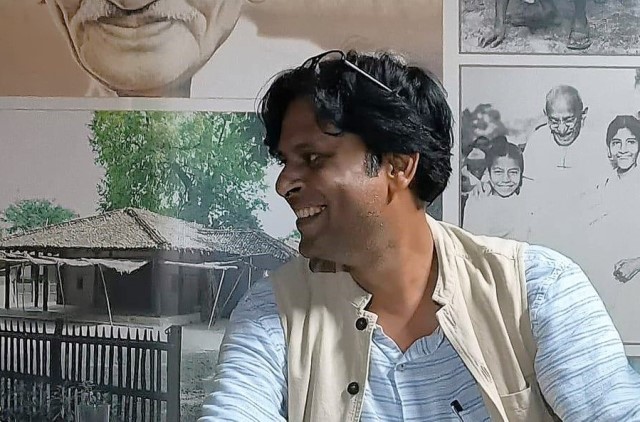Ghufran Ray,Co-founder of Awadh Peoples’ Forum, says the blitzkrieg of Diwali event hides the grim truth of the marginalized people of Ayodhya
The Deepotsav event of Ayodhya may have got the city into the Guinness Book of World Records but it is not a part of local culture or tradition. It started in 2017 when Yogi Adityanath became the Chief Minister of Uttar Pradesh. And there were multiple motives behind this plan.
Initially, it sought to mend the negative perception attached to Ayodhya in people’s minds. Ayodhya has traditionally been a Hindu religious center but after the Babri masjid demolition, it came to be largely seen as a site of communal conflict. Things changed after the final judgment in Ayodhya dispute by the Supreme Court of India on 9 November 2019 which handed over the land to a trust to build the Ram temple.
This also brought an end to the political journey of the Ram Mandir issue. The issue that had brought BJP into power lost its relevance and sustainability. With the Ram Janmbhoomi issue over, the saffron politicians thought of a novel idea to keep the cauldron on fire by lighting record earthen lamps on Diwali. With an eye the 2024 General Elections, the objective was to pep up the locals’ spirit so that Ram Mandir keeps paying political dividends until the next polls.
Thus, Deepotsav is essentially a political event. But we also need to know the cost of this. For example, around a thousand street vendors and shopkeepers in Faizabad have been permanently displaced due to PM’s security during his visit on October 23rd. I went to the market on Dhanteras, that is a day before the big event, and it was like COVID days. The petty shopkeepers who usually depend on the festive season for extra income were deprived of even regular trade. A thousand local families could not celebrate Diwali this year in Faizabad just because the government was hell-bent to make a world record.
ALSO READ: ‘Deepotsav Is A Visual Treat And Spiritual Experience’
The most astonishing feature of this Deepotsav was the procurement of 12 truckloads of flowers not from domestic markets but from cities as far as Kolkata and Bengaluru, and from Indonesia. Flowers were laid on Faizabad roads on which PM’s convoy drove upon. Faizabad Municipal Corporation had to twice float the tenders due to complete the project. Overnight, all the potholes on the highway that connects the city to the airport were filled. That is probably the only benefit for the road users.
A piece of news published in Amar Ujala on September 23rd said the government will forcefully acquire 25 acres of land for the development of an international airport. Thereafter economic activities and land deals have picked up in the adjoining rural areas of Ayodhya. People from Gujarat, Pune, and Mumbai have already arrived in the city and they are opening hotels. This will eventually impact the local livelihood. Small-time traders, vendors, and shopkeepers will gradually turn into labour and migrate to big cities. No local is going to get any benefit out of this so-called development!
So the politics of Deepotsav and the development of Ayodhya are both interconnected. This lethal combination will kick out people who are already on the margins. Watch out for the number of battery rickshaws in Faizabad since COVID. People who came back distressed from cities could not return. They lost their jobs, took small loans, and purchased e-rickshaws.
Events like Deepotsav are essentially designed to suppress and cover up popular dissatisfaction. Obviously, well-off traders, mall owners, showroom holders, and forward-class people benefit from this kind of development and politics but the marginalised like farmers, Dalits, and Muslims are nowhere in sight. Through Deepotsav and Guinness Book, the Government wants to project that all people in Faizabad and Ayodhya have joined hands in this great endeavor. Reality is just the opposite. People have fallen out but the government is trying to show that things are hunky dory. Deepotsav is just one of those bright silver screen that hides the grim truth.
As told to Abhishek Srivastava
